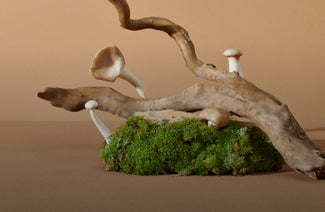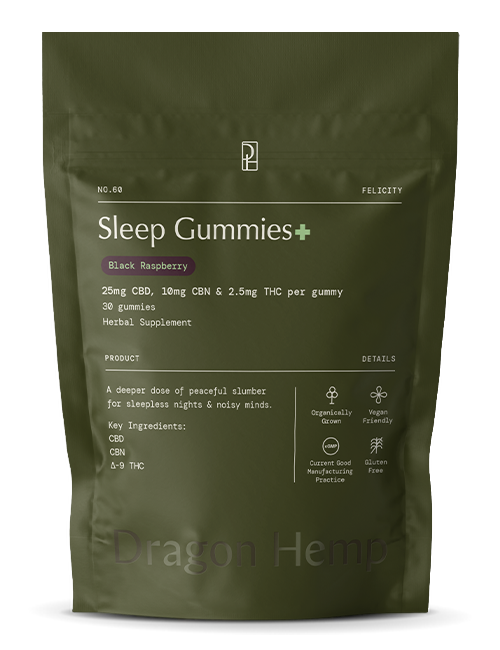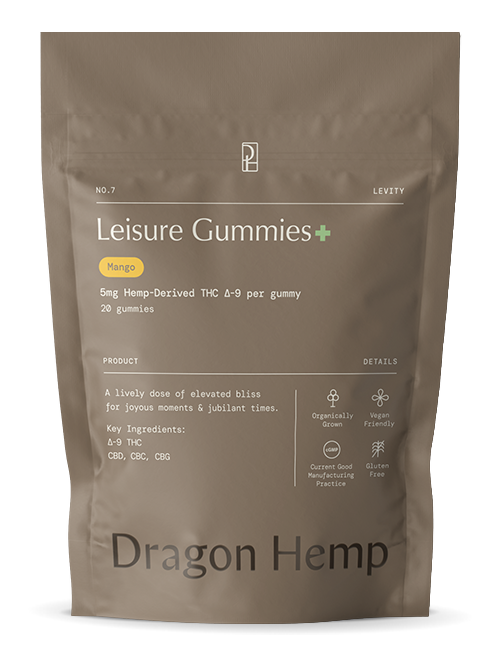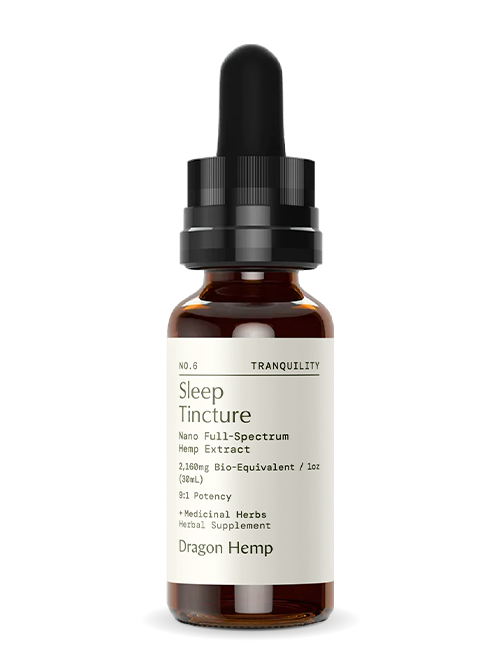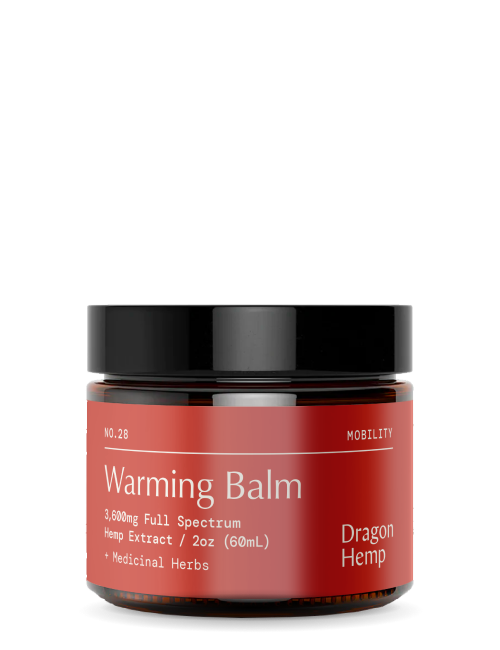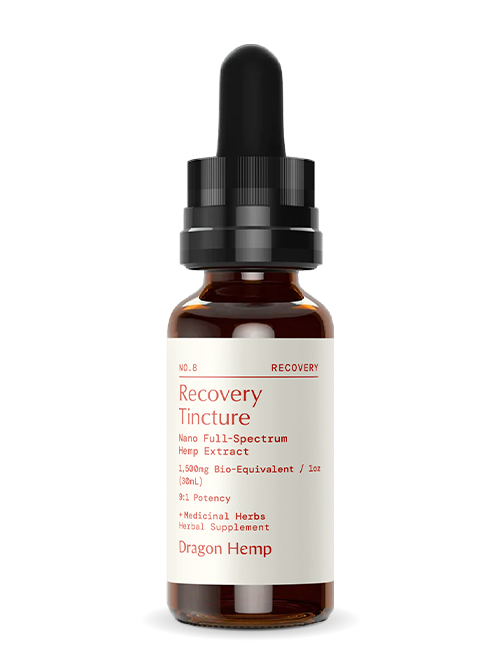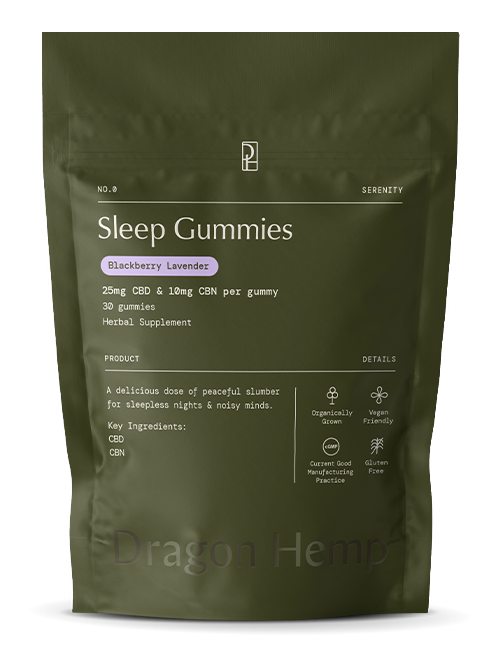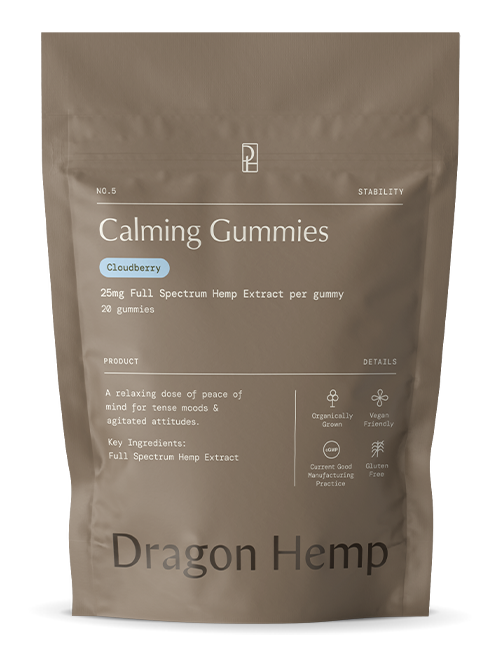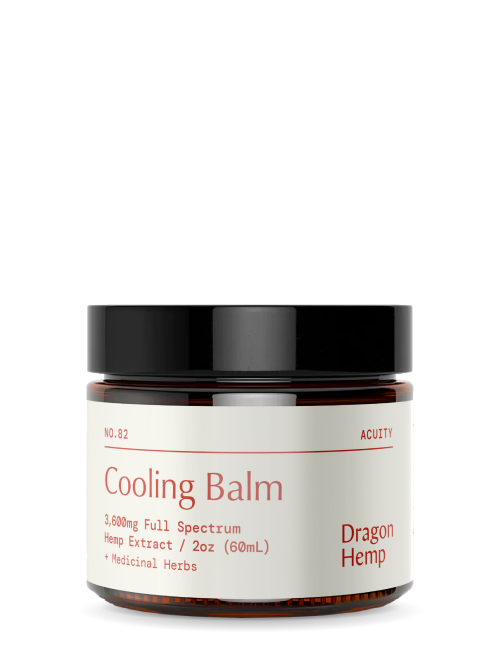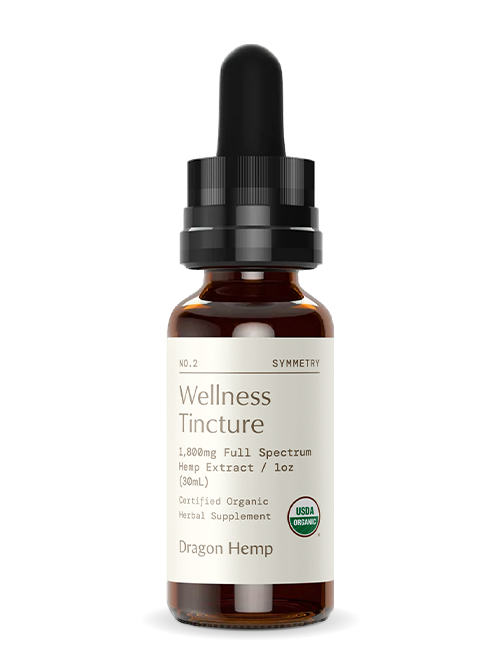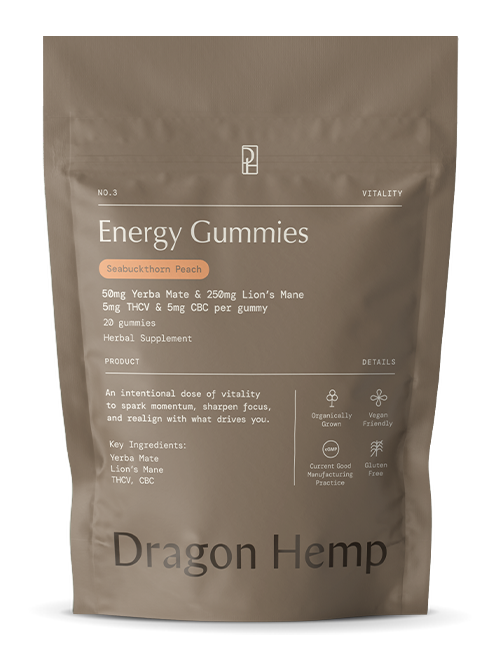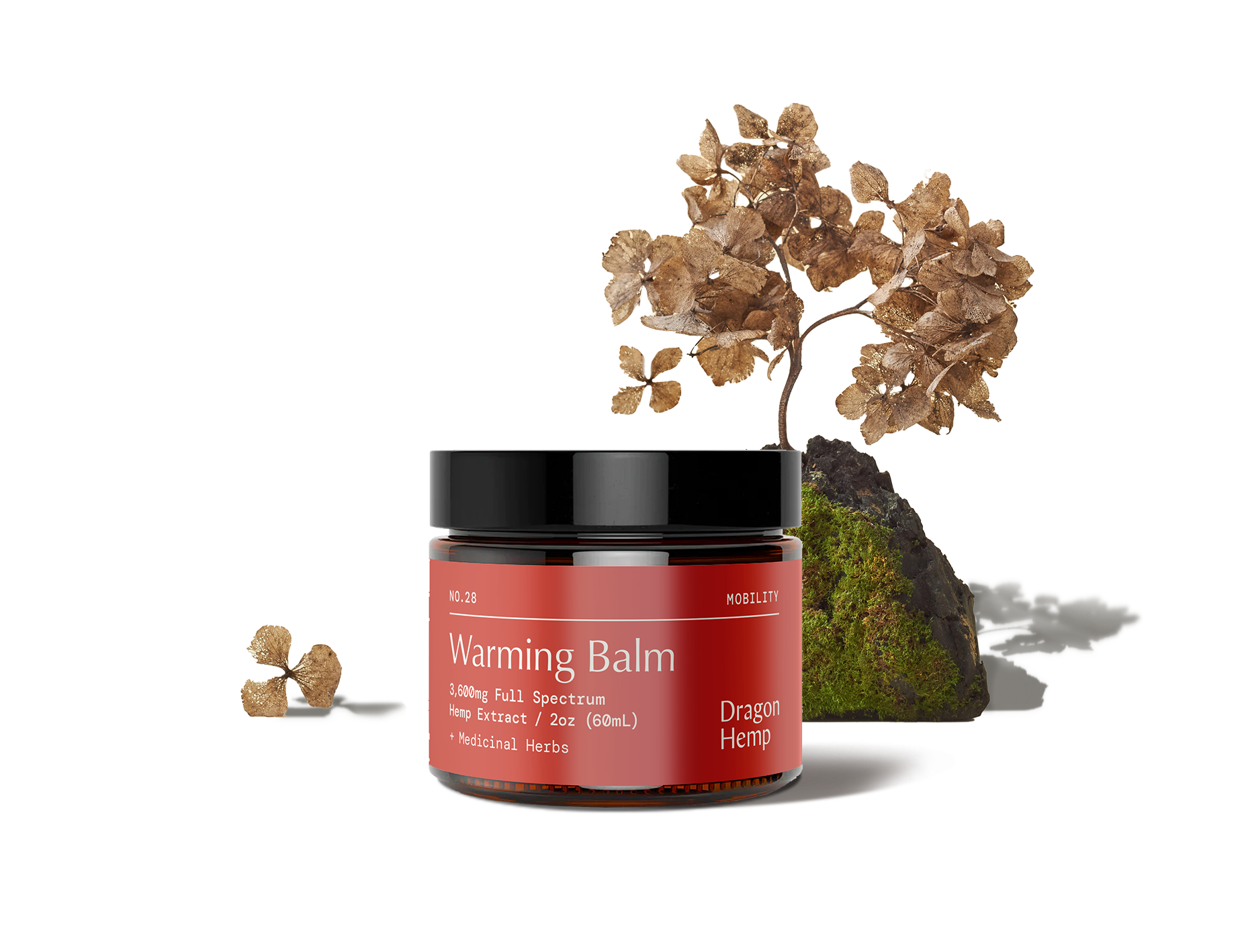
CBD or CBN for Sleep; Which is Better?
The hemp products market is on an impressive growth trajectory. With more and more people turning to natural fixes to address their health issues, there's a growing need for accurate information about the varying benefits of cannabinoids.
This class of compounds is synonymous with cannabis. Much research has been conducted on the "big four," i.e., THC, CBD, CBC, and CBG. Consequently, most of their pharmacological effects are now better understood.
So, it's not surprising that their beneficial effects tend to overlap. For example, while THC is renowned for its relaxing effects, CBD is also a recognized anxiolytic. While this may be so, THC and CBD exert this effect via different molecular pathways.
This could explain why a cannabinoid might perform much better at a particular function than another. Many people don't get enough sleep for various reasons. Stress, bad sleep habits, poor health, etc., are potential inhibitors of good sleep.
The importance of sleep cannot be overemphasized. Therefore, you need to know how to improve your sleep quality. Cannabinoids may help, but only if you understand which one(s) is more effective and how it works. This article explores the sleep-promoting effect of CBD and CBN.
Key Takeaways
- CBN is renowned for its sleep-promoting properties, while CBD has been extensively investigated for its anti-anxiety, anti-seizure, and pain relief effects.
- The best way to harness the beneficial effects of cannabinoids is by combining them. The "entourage effect" theory supports this practice.
- Unlike CBD, CBN is not directly synthesized by the cannabis plant. It is formed when ∆9-THC oxidizes.
CBN and CBD: The Similarities
Cannabidiol (CBD) and cannabinol (CBN) are cannabinoids that exist naturally in cannabis or hemp. CBD is the more dominant and popular of the two. But as research continues on their health benefits, the "popularity" tag may shift someday.
CBD is formed by the decomposition of the precursor compound cannabigerolic acid (CBGA). On the other hand, CBN forms when THC is exposed to heat and oxygen (oxidation). Since CBGA first breaks down into CBD, THC, and CBC, CBN is typically produced in meager amounts (< 1%). It's usually found in aged cannabis material that's been poorly stored.
CBD and CBN share certain similarities despite having different pharmacological effects. For instance, both cannabinoids are non-psychoactive, i.e., they don't make users "high." CBN is thought to be mildly psychoactive since it comes from THC. But with 25% of the potency of THC, substantially large doses are needed to trigger its psychoactive effects. As such, CBN generally passes for a non-psychoactive cannabinoid.
Another shared feature of both cannabinoids is their anti-inflammatory and immunomodulatory effects. Multiple studies have investigated these properties in both cannabinoids and yielded promising results. CBD and CBN are both CB2 receptor agonists, though their binding affinities differ.
For example, owing to its ability to bind to the CB2 receptor, this study found that CBN could mitigate certain pain disorders by reducing mechanical sensitivity. CBD's pain-relief properties have been extensively studied, with this study equally highlighting its potential role in pain management.
Another interesting similarity between these cannabinoids is their legal status. While the 2018 Farm Bill effectively made all hemp-derived compounds legal, it restricts the amount of ∆9-THC in hemp products. In effect, ∆9-THC is a quasi-controlled substance. However, both CBD and CBN have no such limitations.
Learn more about CBD and CBC.
How CBD and CBN Work With the Endocannabinoid System
The ability of phytocannabinoids to influence bodily reactions owes to their interactions with the endocannabinoid system (ECS). The ECS is a vast, intricate network of neurotransmitters, their receptors (CB1 and CB2), and enzymes that span the length and breadth of the mammalian body.
Though implicated in various vital functions, the ECS is mainly recognized for maintaining homeostasis. The primary neurotransmitters in the ECS are anandamide (AEA) and 2-Arachidonoylglycerol (2-AG). These are involved in many processes that preserve emotional, physiological, and cognitive stability.
AEA and 2-AG are essentially endocannabinoids, i.e., cannabinoids produced by the body. They attach to the CB receptors and trigger beneficial reactions in the body. Since phytocannabinoids and endocannabinoids have near-identical chemical structures, it's been shown that the former can also stimulate/suppress receptor activity.
An intake of CBD or CBN activates the preferred CB receptor and promotes the release of the endogenous molecules AEA and 2-AG. AEA demonstrates a higher affinity for the CB1 receptor than the CB2 receptor. Similarly, 2-AG displays greater efficacy and potency as a CB1 and CB2 agonist than AEA.
Besides the ECS, CBD, and CBN can also interact with non-cannabinoid receptors. This expands its range of molecular targets and pharmacological profile.
In a nutshell, cannabinoids exert their effect by stimulating the release of the neurotransmitters AEA and 2-AG. Unlike other endogenous molecules pre-synthesized and stored in the body, AEA and 2-AG are typically produced on demand.
Of course, cannabinoids are not the only compounds that supercharge the ECS. Dark chocolate, physical exercise, foods rich in omega-3 fatty acids (e.g., black cod, salmon, sardines, herring, etc.), and medicinal herbs like Ruta graveolens, basil, Electric Daisy, etc., are potent ECS stimulators.
The Benefits of CBD
The benefits of CBD have been extensively studied. Currently, empirical evidence supporting these benefits abounds. The areas where CBD demonstrates promising therapeutic potential are:
Anti-seizure
A 2020 study investigating the anticonvulsant effects of CBD on experimental epilepsy models concluded that "[it shows] effectiveness in the clinical scenario for epilepsies." Researchers think that being a multi-target molecule, CBD may control seizures by modulating neuronal excitability via different pathways.
For example, they contend that CBD's interaction with transmembrane receptors reduces neuronal cell activity by almost 75%. This inhibitory effect may underpin its seizure-control effect.
Moreover, since CBD promotes the production of AEA, high levels of this neurotransmitter are thought to suppress neuronal excitability. Further, CBD can increase adenosine levels resulting in anti-seizure effects due to the activation of A1 receptors.
Also, CBD appears to prevent CB1 receptor alterations in limbic brain structures, thus stabilizing neuronal activity.
All in all, this paper outlines the many potential pathways to CBD's anticonvulsant effects. We won't go into these because they focus on non-ECS routes. But it's worth a read.
As a result of its potent anticonvulsant properties, a CBD-based drug called Epidiolex is FDA-approved for treating symptoms associated with two rare epilepsy types. A version of this drug is also used in the EU to treat seizures due to tuberous sclerosis complex in patients older than two years.
Anti-inflammatory and antioxidant
CBD's anti-inflammatory and antioxidant properties are well-established. A recent study suggested four mechanisms to explain its anti-inflammatory effect. These are:
- By reducing the production of pro-inflammatory proteins
- Inhibiting the proliferation of T cells
- Inducing the "natural death" of T cells
- Preventing the migration and adhesion of immune cells.
Other studies peg CBD's anti-inflammatory quality on its ability to reduce lipid peroxidation. This happens via a reduction of NADPH oxidase (NOx) – a compound that fuels the production of reactive oxygen species (ROS). In the same vein, CBD is thought to enhance ROS scavenging.
Although these explanations barely scratch the surface as far as CBD's ability to alleviate inflammation goes, they offer glimpses into its inner workings. As a result, CBD use in addressing inflammatory diseases and conditions has increased in recent years.
Anti-anxiety and antidepressant
With stress levels at an all-time high, the demand for antidepressants and stress-relieving medications is high. The good news is that CBD may also help in this respect.
A 2020 study supports the efficacy of CBD in reducing stress and depression. This is due to its interaction with the CB2 receptors and other non-cannabinoid receptors. It has since been established that CBD exerts its anxiolytic effects in a dose-dependent manner, with medium doses noted to be effective.
It's been proposed that CBD exerts its anxiolytic effect by activating the hypothalamus-pituitary-adrenal (HPA) axis and the 5-HT1A receptors. Interestingly, a recent study suggested that CBD's antidepressant activity might be gender specific as it was more noticeable in male but not in female rats.
Since cannabis research is young, such inconsistencies are inevitable. There are suggestions that the mode and pattern of administration, age, and dosage are critical determinants of CBD's efficacy in reducing depression.
Overall, CBD's pharmaceutical value as a stress reliever is significant. Nonetheless, clinical trials are needed to validate the findings of these animal studies.
Pain relief
On its own, CBD doesn't appear to possess substantial analgesic effects. However, when used with ∆9-THC, its ability to reduce pain increases significantly.
As a result, CBD's value in pain management is currently under investigation. Thus far, scientists are clear that its analgesic effect is indeterminate, citing insufficient clinical trials to support efficacy claims.
Nonetheless, CBD is still widely used to manage pain. It's prevalent in sports to alleviate painful inflammatory conditions and aid muscle recovery.
Anti-nausea
For patients on chemotherapy, keeping food in the stomach can be a struggle. Fortunately, CBD exhibits anti-nausea properties and could help manage nausea and vomiting in cancer patients.
CBD's anti-nausea quality may be mediated via the activation of 5-HT1A receptors in a region in the brain called the dorsal raphe nucleus.
Currently, THC-based drugs nabilone and dronabinol are used to suppress chemotherapy-induced nausea and vomiting. Their efficacy has been compared to other anti-nausea medicines.
These findings support the potential therapeutic value of cannabinoids in managing problematic symptoms. Chemotherapy-induced nausea and vomiting baffled medics in the early 70s and 80s by not responding to treatment. So the discovery that cannabinoids may be more effective is a welcome breakthrough.
The Effects of CBD
CBD is non-psychoactive, so it cannot induce physical mind-altering effects. It's important to emphasize the word physical because it's been argued that CBD can produce relaxation and sedation; therefore, it's mind-altering.
However, physical mental effects imply THC-like effects such as euphoria, being giggly, and in extreme circumstances, hallucination, and anxiety.
While CBD is often lauded for its excellent safety profile, it's been noted to have adverse side effects. For example, some users complain of dry mouth, fatigue, nausea, diarrhea, and reduced appetite. It may also interact with conventional medications to produce undetermined effects.
The Benefits of CBN
CBN is not as well studied as CBD, meaning there is a shortage of information regarding its pharmacodynamics. However, the little research that's been conducted on it suggests this compound may also have admirable health benefits.
Like CBD, CBN demonstrates an affinity for both CB1 and CB2 receptors. However, its potency and efficacy at these receptors are nowhere near ∆9-THC. in fact, it is thought to bind ten times weaker to CB1 receptors than ∆9-THC.
CBN also interacts with non-cannabinoid receptors, such as the transient receptor potential (TRP) ion channels. It's an agonist at TRPV1, 2, 3, and 4, stimulating an influx of Ca2+ and activating Ca2+-dependent pathways. Also, it can trigger the TRPA1 channel potently and effectively.
CBN displays an array of beneficial pharmacological effects thanks to its ability to target receptors within and beyond the ECS.
Analgesic and anti-inflammatory
Studies on rats show that CBN can alleviate certain types of pain by minimizing mechanical sensitivity. When combined with CBD in a 1:1 ratio, this pain-relief effect increased significantly, perhaps attesting to the validity of the "entourage effect."
Other studies also show that CBN can suppress the production of pro-inflammatory cytokines (interleukins 2, 4, 5, 13) and mucus production due to allergy. As a result, several studies highlight the potential value of CBN in treating allergic respiratory diseases.
Other studies suggest that CBN may also help treat glaucoma due to its ability to prevent inflammation. CBN also exhibits antioxidant properties, as a study found it reduced cell damage due to Huntington's disease.
Antibacterial
Many cannabinoids are antibacterial, and CBN is no different. It appears effective against several strains of drug-resistant bacteria, including the stubborn Staphylococcus aureus.
Appetite stimulation
Remember how ∆9-THC gives users "the munchies"? Well, it seems CBN also has this effect. Animal studies show that CBN increased feeding time and food consumption in murine models.
This makes it a potential remedy for conditions characterized by appetite loss, such as HIV infection and cancer.
Sleep promotion
CBN has been studied primarily for its sleep-promoting properties. In some circles, it's called the "sleepy cannabinoid in old weed," highlighting its potential to help with sleep problems. But what does science say?
Findings from numerous experiments with CBN support its sleep-supporting properties. For example, one study showed it increased sleep time, while another indicated it increased sedation when combined with THC.
Thus far, CBN's ability to enhance sleep is unsubstantiated from a clinical point of view. But if these early findings are anything to go by, they could broaden the options for millions of people with sleep problems.
The Effects of CBN
CBN is non-psychoactive in low to medium doses. So, it's not your ideal go-to when looking for a stimulating buzz. But if you want to relax without the unsettling "high" of THC, then CBN might be a better option.
Another cannabinoid touted for its relaxing effect is THCV. Check out how it's different from THC and its potential health benefits.
CBD or CBN for Sleep: Which is Better?
Both cannabinoids have impressive health benefits, so we shirk to state that one is better. That said, CBD has been extensively studied for its pain relief, anti-seizure, and anti-anxiety qualities. Research is ongoing to establish what more benefits CBN can offer.
On its part, CBN is widely considered to be a sleep-promoting cannabinoid despite the lack of solid evidence. Its analgesic and appetite-stimulating effects have also been areas of interest in science.
Here's the thing, though; it seems likely that cannabinoids work better together than alone (entourage effect). Science hasn't explained how this "entourage effect" theory works, but there's enough anecdotal evidence (from users) that supports it.
So, if you want to use cannabinoids for better sleep, we recommend using both CBD and CBN. Indeed, manufacturers have cashed in on this practice, and many hemp products now mix cannabinoids and other compounds, e.g., terpenes and Chinese herbs, to increase efficacy.
How to Use Cannabinoids for Sleep
While cannabinoids haven't been expressly approved for treating sleep problems, research shows they may have potential benefits. So, if you plan to use cannabinoids, it may be a good idea to consult a certified cannabis practitioner for guidance.
At the same time, you might want to consider taking cannabinoids in the evening a few hours before bedtime. This depends on the product type, dosage, and method of administration.
Edibles like gummies and capsules take longer to work because they go through the digestive system. Also, they undergo the "first-pass" effect, which reduces the number of bioactive ingredients absorbed into the bloodstream. However, their long-lasting effects make them ideal for chronic sleep problems.
Oils, tinctures, and sprays generally kick in fastest, typically within minutes. However, their effects are short-lived, so you may have to re-dose frequently.
How Much CBN to Take for Sleep
Since CBN's sleep-promoting quality is still under investigation, no specific dosage has been earmarked for sleep. Mostly, manufacturers quote a ballpark figure they feel may help promote sleep.
That said, a dose of 5mg or less is thought to be able to induce sleep. In another clinical study, 50mg of CBN and 12.5mg of THC increased sedation significantly. Other reports suggest that 150mg of CBN and 450mg of CBD may help enhance sleep.
As you can tell, the pharmacodynamics of CBN is affected by multiple factors. Lower doses appear to be effective when combined with THC. But when teamed up with CBD, higher doses seem to work well.
The implication is that using cannabinoids for sleep is not an exact science. You may need to tinker with different doses before getting your effective dose. Indeed, this is why the "start low and slow" maxim is important for cannabinoid users.
For best results, start with a lower dose as recommended by the manufacturer and up it gradually. This should be done methodically, ideally by an equivalent dose per week.
Where to Buy CBN Online
Now to the final and exciting part – where to buy CBN online. We vouch for Dragon Hemp – a company that specializes in developing natural health and wellness products with hemp CBD, Chinese herbs, and other botanicals.
The ingredients used to make these products are clean-sourced, organic, and high-quality. This ensures Dragon Hemp products are safe and effective for addressing myriads of health problems.
So if you struggle with sleep, it's time you try these Sleep gummies. They contain premium-grade CBN and CBD in a 4:1 ratio to help you fall and stay asleep longer. That's because they calm the mind and relax the body, putting you in the ideal state for natural, restful sleep.Feel like yourself again.
Peruse our collection of plant-based therapeutics blending time-honored herbal remedies with next-generation cannabinoid extracts.


